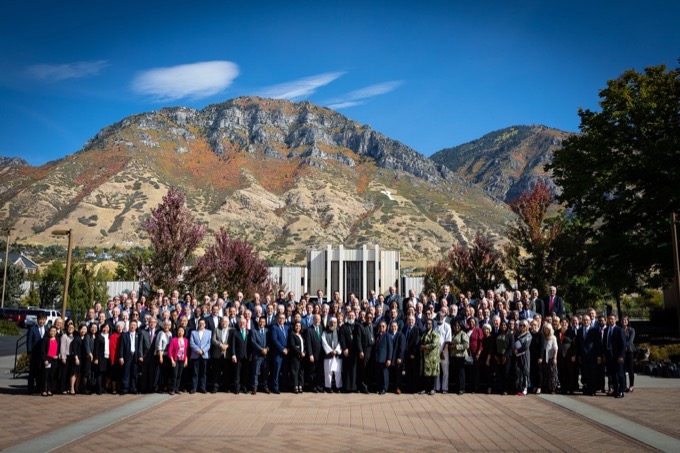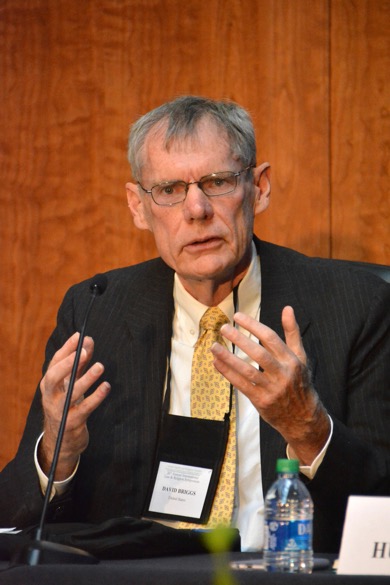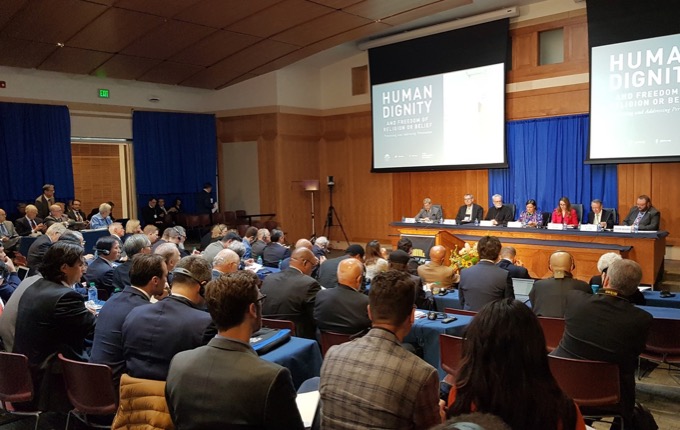I membri fondatori della IARJ contribuiscono alla discussione globale sulla libertà di religione e la dignità umana

How can leaders in religion, media, education, agencies and nonprofits work together to more effectively combat religious persecution?
A few days before the Halle synagogue shooting, over 100 delegates from nearly 50 countries gathered in Provo, Utah, for the 26th Annual Law and Religion Symposium under the theme: Human Dignity and Religious Freedom —Preventing and Responding to Persecution at the International Center for Law and Religion Studies, Brigham Young University.
The 3-day meeting—aimed at examining global religious persecution through a shared commitment to human dignity and freedom of religion or belief—was an unparalleled opportunity to address the persistence of religious persecution from various angles.
Religious leaders, human rights advocates, scholars, representatives of universities, institutes and judiciaries and national governments, contributed to the discussion, sharing experiences, ideas and insights, and, above all, becoming part of the efforts worldwide to address and prevent religious persecution. The diverse program included the critical roles of journalists and other media professionals.

We got into an extraordinarily polarized culture,
said veteran religion journalist David Briggs, senior advisor and founding executive director of the International Association of Religion Journalists (IARJ).
Briggs called for common recognition of dignity of others and expression of our own humility towards other, valuing each person.
Briggs contributed to the discussion on religious persecution at the first plenary session of the symposium, moderated by Brett G. Scharffs, director of the ICLRS.
Media has become part of this increasingly polarized culture. Each one of us are responsible in a world where the truth is not often communicated, and particularly in the media, to humbly search for the truth and courageously present that will do a great service for reducing religious persecution
, he added, stressing the importance of humility and recalling the shared value of human dignity and its relation to freedom of religion or belief, as in the Punta del Este Declaration on Human Dignity. The document, which was adopted in December 2018, commemorates the 70th anniversary of the adoption of the Universal Declaration of Human Rights and celebrates its recognition of human dignity at the core of human rights.
Here is a link to the video of the first plenary session: https://players.brightcove.net/605542268001/default_default/index.html?videoId=6092999732001

Religious freedom and human dignity—Media perspectives.
The role of journalists and other media professionals in issues of religious freedom and human dignity was addressed by IARJ leaders in two separate sessions. They shared the challenges they face in covering faith and religion in different regions of the world, the religious landscapes in their countries and the issues that draw most attention.
In a session moderated by David Briggs, Sri Lankan tv-journalist Indeewari Amuwatte, head of English News, talked about the challenges of accurate coverage of the Easter Sunday attacks in Colombo, while coping with misinformation and fake news circulating in social media.
Mexican journalists David Ramos, Catholic ACI Prensa, and Norwegian reporter Astrid Dalehaugh Norheim, news editor for the Christian newspaper Dagen, shared their experiences in reporting on minorities, religion and refugees.
A wider overview of religious issues related to Europe was addressed by Maria-Paz Lopez, correspondent of LaVanguardia, who spoke in the second session moderated by Peggy Fletcher Stack, religion reporter of Salt Lake Tribune.
IARJ Chair Douglas Todd and IARJ Executive director Endy Bayuni, senior editor at Jakarta Post, described the situation in Canada and Indonesia respectively, in relation to religious and press freedom.
While covering religion in different regions and languages, working for different media outlets and focusing on different issues related to religion, they all stressed the need and importance of accurate, balanced, un-biased and ethical religion coverage to foster understanding.
Here the recordings of two sessions:
- Religious freedom and human dignity – Session 1
- Religious freedom and human dignity – Session 2
- More recordings of the symposium sessions are available at https://www.iclrs.org/annual-international-law-and-religion-symposium/26th-annual-international-law-and-religion-symposium/2019-symposium-recordings/
